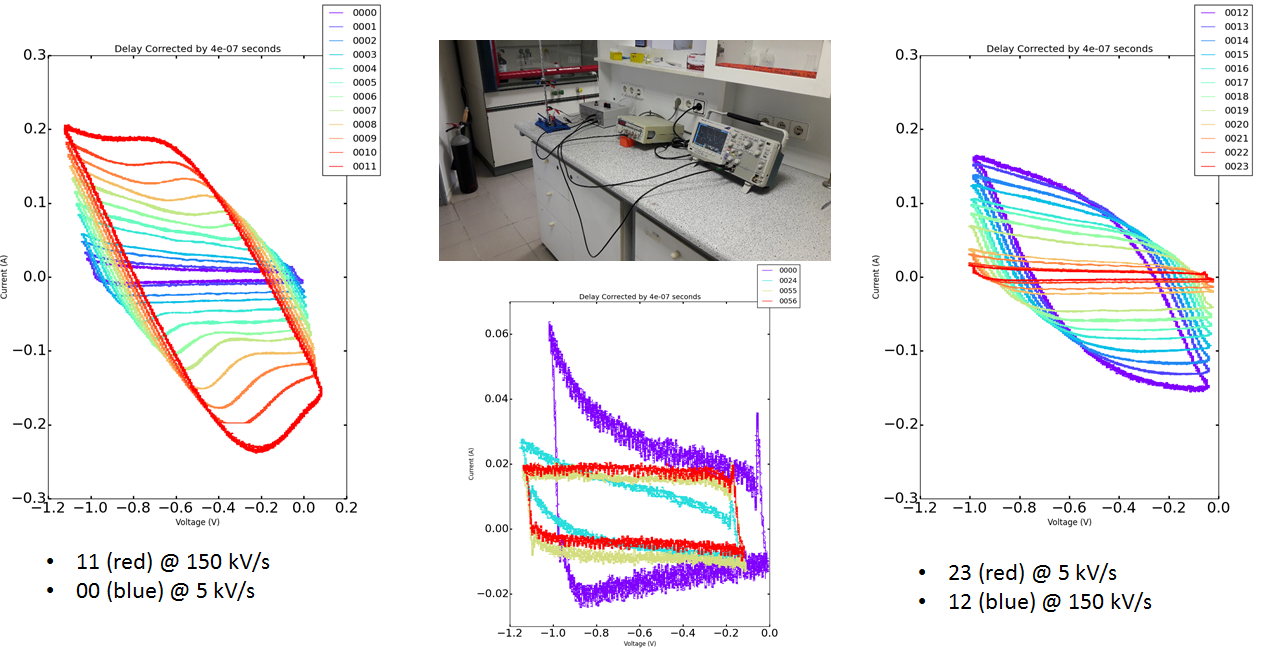
In cyclic voltammetry the species that show a current response in the time scale of the experiment are the ones that can travel the length of the diffusion layer. By increasing the rate at which a triangular potential is swept (sweeprate), the length of the diffusion layer can be tuned such that only the electron transfer occurs without the counter ion diffusion required for electroneutrality. Using this decoupling principle, we are investigating electron transfer kinetics of electrochemically deposited polymer thin films.
The instrument, Ultrafast potentiostat, is home built. It has a positive feedback loop that compensates for the potential drop due to the cell resistance in real time, thus allowing undisturbed voltammograms to be taken at high sweep rates. To give an idea about the sweep rates in question, regular potentiostats are usually operated at sweep rates of 1 mV/s to 100 V/s whereas our Ultrafast potentiostat can achieve sweeps of 150-200 kV/s.
